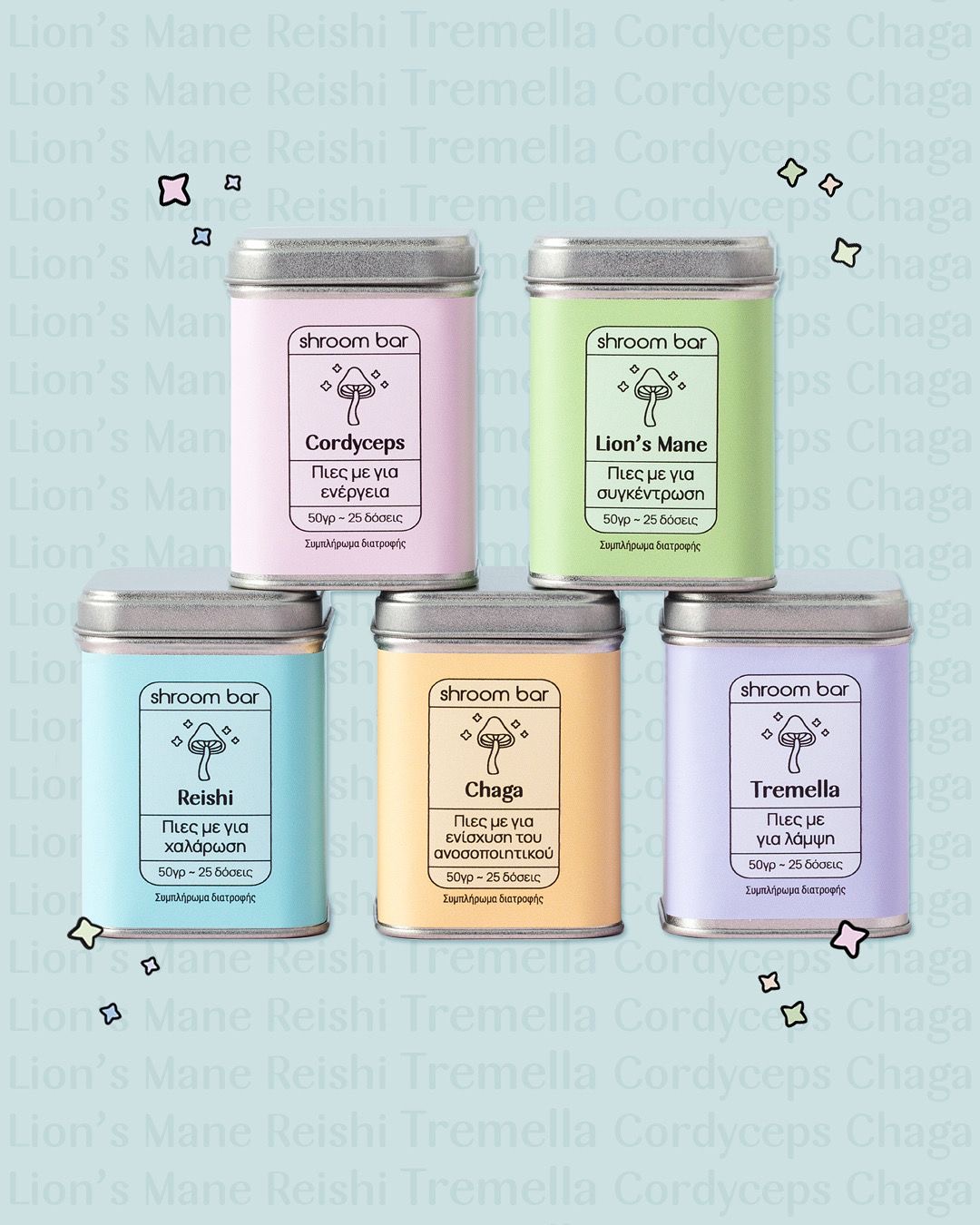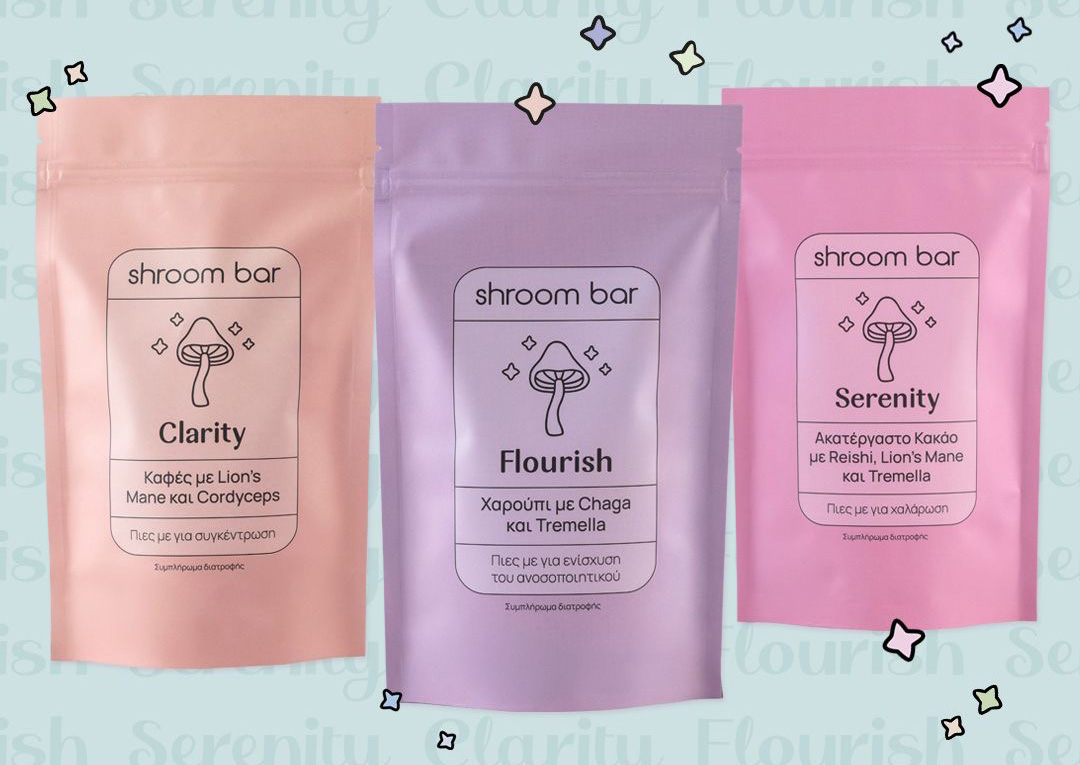Say shroom and people think of psychedelics, but natural plants are being linked to a host of wellness benefits
By Christina Michailidis
Once confined to traditional Chinese medicine, mushrooms are now appearing in coffees, cacao blends, smoothies, and supplements aimed at everyday wellness, promoting anything from focus and stamina to immunity and skin health. And in keeping with trends in places like the US and UK, Cyprus is beginning to discover them.
For centuries, mushrooms have been used in healing traditions around the world. In China, reishi built a reputation as the “mushroom of immortality”. Chipped from birch trees in Siberia, chaga, was used in teas to ward off illness in the winter. Lion’s Mane was to treat wounds and increase brain health. And now modern studies are beginning to examine fungi for their antioxidant, immune-supporting, and cognitive benefits.
In Cyprus, local wellness remedies lean on ingredients like carob, olive oil, herbs and honey. But Demetri Iouliou is working to introduce these lesser-known fungi through the Shroom Bar.
“It’s not been part of our tradition or culture here… you have carob, olive oil, certain honeys that offer healing benefits, but medicinal mushrooms do not grow naturally in Cyprus. We do not have the climate or the soil. So, when people hear ‘mushroom’, their minds go straight to psychedelics, not functional health,” he says.
There is room for both though, and he is working to let people know what they are and what they are not. While thousands of mushroom species exist, a handful have emerged in the wellness world. These functional varieties are studied for their potential to support everyday health. “People stack different mushrooms together so they’re covering different areas – focus, energy, sleep, immunity. It’s about balance,” Demetri says.

Take Lion’s Mane, a shaggy white mushroom that resembles a lion’s mane, which is widely used to sharpen the mind. Studies suggest it may even support nerve regeneration. Demetri says it’s the most popular choice among his customers. “We are all bombarded with information and struggling to focus, Lion’s Mane seems to be the one most people reach for”.
Fans of The Last of Us may recognise Cordyceps as the fungus that infects humans in the hit series. A different type is used in wellness supplements: lab cultivated, it is studied for its potential to boost stamina, energy and lung health, not for creating zombies.
Reishi is an ancient calming mushroom, brewed for relaxation and immune support. While Chaga, found on birch trees, is packed with antioxidants and is often recommended for immunity, especially in colder months. Tremella has been nicknamed the ‘beauty mushroom’ for its collagen-like compounds that support hydration and skin health.
Together, these mushrooms represent the core of today’s supplement market, available as powders, teas, and blends.
Rather than replacing food or medicine, mushrooms slip into routines: stirred into morning coffee, blended in cacaos and taken in the evening to wind down. “Lion’s mane is definitely the most popular,” says Demetri. “In today’s world of distraction, people are looking for help with focus. After that, it’s Cordyceps, runners and cyclists love it for energy.”

But functional mushrooms in Cyprus remain “a very niche market here”, Demetri admits. “Trends arrive later, but Covid shifted things, people started looking for ways to support their health, and they’re more open to experimenting”.
Part of the hesitation boils down to the continued use of traditional products and also that functional fungi do not grow here. Still, interest is growing. He points to the recent popularity of matcha in Cyprus as an example, “the idea of it competing with coffee would have seemed laughable in Cyprus”. Now it’s mainstream.
With time, he believes functional mushrooms could find their place alongside more familiar natural products. One of the biggest hurdles seems to be clearing up confusion. The word “mushroom” alone is enough to spark jokes about psychedelics. “As soon as I say mushrooms, people laugh and ask if I mean the trippy ones,” he explains.
“The reality is these are legal, safe and aimed at supporting everyday balance. It needs communication, awareness and a chance for people to try it”.
Globally, the functional mushroom market is expected to grow steadily over the next decade, even though nutritionists are keen to stress that these fungi are not a substitute for a balanced diet, although they can play a supportive role in wellness routines. This combination of ancient tradition and modern science is exactly what makes them so compelling – and why their story in Cyprus is only just beginning.






Click here to change your cookie preferences